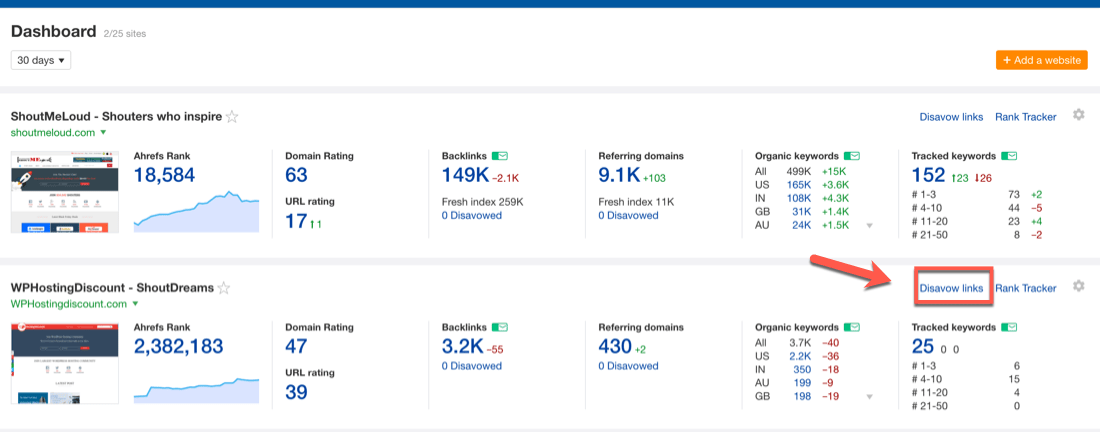
Link disavowal is an essential aspect of SEO, and here’s a profile description that highlights your expertise in this area:
“I am Mohammad Saiful Islam, a seasoned SEO expert with a specialized skill in Link Disavowal. Based in Bangladesh, I excel in optimizing website performance by meticulously managing backlink profiles. I am well-versed in identifying and disavowing harmful or low-quality links that can negatively impact search engine rankings. Through thorough analysis and strategic disavowal, I ensure that your website remains in compliance with search engine guidelines and maintains a healthy link profile. Let’s collaborate to enhance your website’s SEO and safeguard it against the detrimental effects of poor-quality backlinks.”
Link disavowal is a critical process in search engine optimization (SEO) where you request search engines, like Google, to ignore specific backlinks to your website. It’s typically done to improve your site’s search engine ranking and avoid potential penalties.
Here’s a more detailed explanation of link disavowal:
**Backlink Quality:**
Search engines evaluate the quality of backlinks pointing to your site. High-quality, relevant, and authoritative backlinks can improve your site’s ranking, while low-quality or spammy links can harm it.
**Identifying Harmful Links:**
As an SEO expert, you would analyze your backlink profile to identify links that are potentially harmful. These can include links from link farms, low-quality directories, or irrelevant websites.
**Disavowal Process:**
Once you’ve identified harmful links, you create a disavowal file. This file contains a list of URLs or domains you want to disavow, and you submit it to Google or other search engines through their respective tools, like Google’s Disavow Links Tool.
**Regular Monitoring:**
Link disavowal is an ongoing process. As an SEO expert, you should continuously monitor your backlink profile and disavow new harmful links that may appear.
**Caution and Expertise:**
It’s crucial to exercise caution when disavowing links, as incorrect disavowals can harm your SEO. This is why it’s often best left to SEO experts who have experience in identifying which links should be disavowed.
Link disavowal can help maintain a clean and high-quality backlink profile, which, in turn, can improve your website’s search engine rankings and protect it from potential penalties.

Link disavowal is a process in search engine optimization (SEO) where you inform search engines, such as Google, that you want to disassociate your website from certain inbound links. These links may be considered low-quality, spammy, or potentially harmful to your site’s search engine ranking. Disavowing links is a way to tell search engines not to consider these particular links when assessing your site’s authority and relevance.
Here’s how the link disavowal process works:
**Identify Harmful Links:**
First, you need to identify the links you want to disavow. This involves auditing your backlink profile to find links from sources that could potentially harm your site’s SEO.
**Create a Disavow File:**
You’ll create a plain text file (usually in .txt format) that lists the URLs or domains you want to disavow. Each entry should be on a new line. Here’s an example:
“`
# Disavow individual URL
http://www.example.com/spammy-link.html
# Disavow entire domain
domain:example.com
“`
**Submit the Disavow File:**
You’ll then use Google’s Disavow Links Tool or the equivalent tool provided by other search engines to upload the disavow file. This tells the search engine not to count the specified links when assessing your site.
**Monitor and Review:**
After submitting the disavow file, monitor your site’s performance. It may take some time for search engines to process your disavowal requests. Regularly review your backlink profile and update your disavow file as needed.
It’s important to use link disavowal carefully. Disavowing high-quality or legitimate backlinks can harm your site’s SEO. Typically, disavowal is used to address links from spammy or irrelevant sites, links created as part of negative SEO attacks, or links from sources you can’t control.
Properly identifying and disavowing harmful links can help improve your site’s search engine ranking and protect it from potential penalties, but it should be part of a broader SEO strategy that includes building high-quality, natural backlinks.
